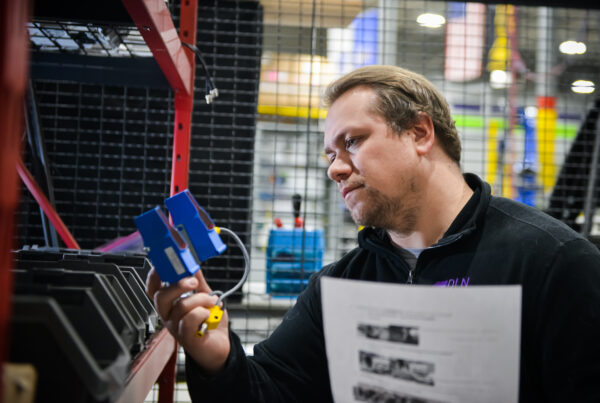
The DLN team held an educational conference in mid-October that featured four sought-after experts to speak about what’s realistically ahead in logistics and distribution.
Our first speaker was Dr. Bill Ferrell, Fluor International Capital Supply Chain Partnership professor and Associate Dean of the Graduate School at Clemson University. As one of the authors of the U.S. Roadmap for Material Handling & Logistics and an active researcher in supply chain, Bill is well-versed in making educated predictions for where our industry is headed.
Bill recognized that we can’t tell the future, but that we could pay attention to 2 drivers of change:
External Disruptors. These are things like COVID-19, the Evergreen cargo ship blocking the Suez canal, the Fukushima nuclear disasters that impede shipping. These external disruptors happen quickly, are bad for business and increase variability.
Environmental Trends. These are consumer requirements and technology capability. These environmental trends happen slowly overtime and provide opportunity.
Bill shared 5 Environmental trends and they impact they are having in logistics. For example, the trend on faster delivery speed expectations – instant product availability and rapid product delivery, even in non-eCommerce settings for both individuals and businesses – which results in an emphasis of flow and flexibility throughout the supply chain.
Fortunately, there are only 3 things we can always control in our operations: capacity, cycle time and inventory. We can also see the environmental trends to understand what our future holds in a broad sense. Consumers won’t all of the sudden be content with longer ship times, for instance. We are continually moving to faster order cycles.
Even with what we know and what we can control, there will always be disruptors. Geopolitical unsteadiness, global health crises, and natural disasters will always be unexpected.
Bill offers his best advice at managing your supply chain strategy. First, analyze situations with an open mind. Consider as many alternatives as possible. Then pick the option that is best for you – whether it is a robust supply chain to buffer impacts of disruptors or a flexible supply chain to respond to them. He urged our attendees to weigh the impact of capital expenditures today with the potential of tomorrow. He encouraged decision makers to deeply understand the business and it’s goals.
“Nobody gets credit for solving a problem that does not happen” was a key challenge with which he ended his talk. What do you think? If you’d like to be kept updated about future educational events, please contact us!





